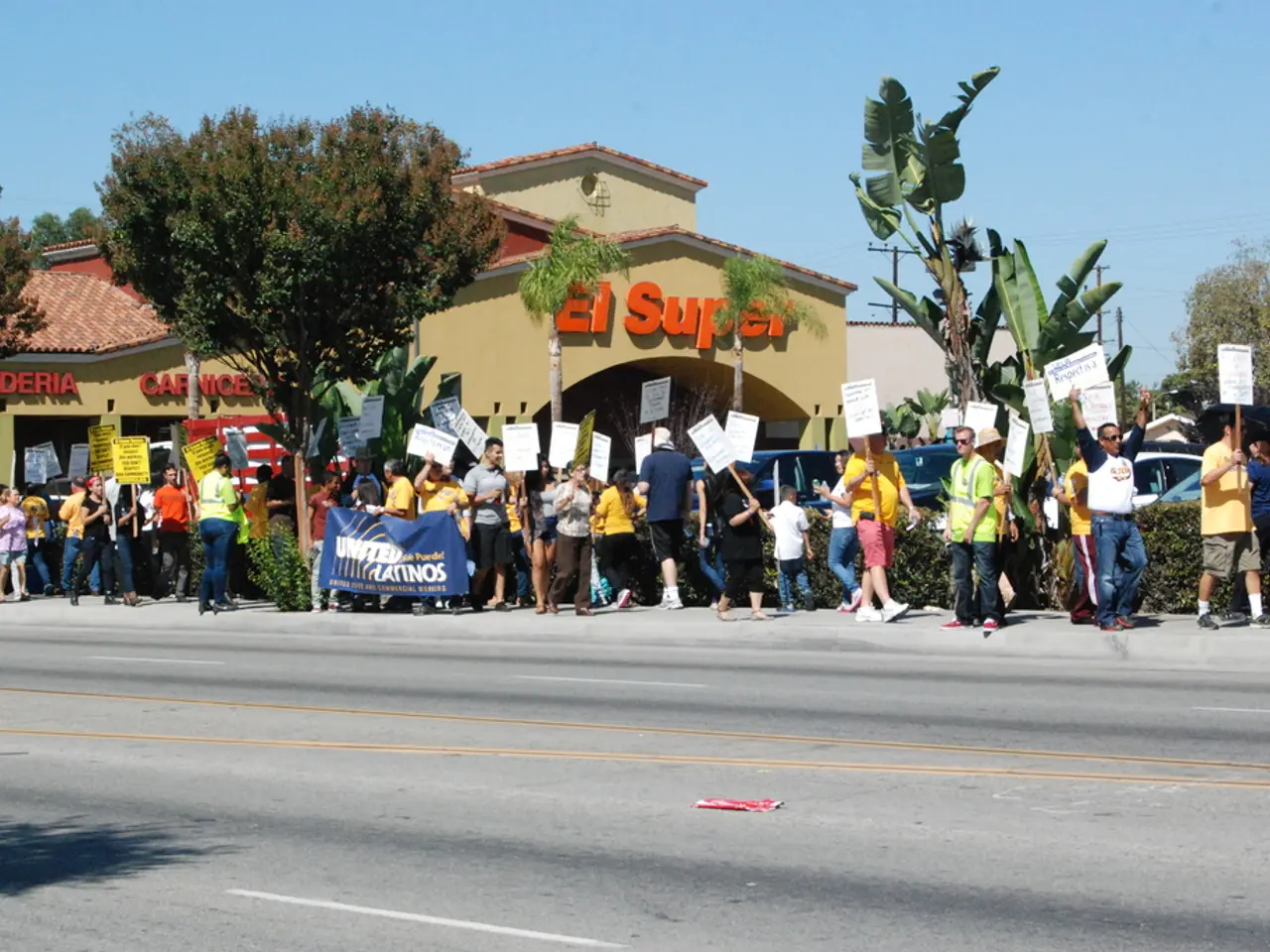Exorbitant railway tariffs pose a risk to the continuity of goods transportation over extensive routes.
The German rail industry is facing a challenging period due to increasing track access charges, primarily resulting from recent government funding and financing structures aimed at renovating and maintaining the rail infrastructure. These developments have sparked calls for political support and intervention to ensure a competitive and financially viable market.
### The Need for Political Support
The surge in track access charges is partly due to the government's decision to increase equity in DB InfraGO AG, the company operating the rail network. This move was necessitated by the debt brake rule, which bars direct construction subsidies. However, the equity injection is financed at high interest rates, causing track access charges to rise by up to 30% over the past five years, depending on the segment. This increase in costs threatens the survival of rail competitors and undermines market competitiveness.
Another issue arises from the dual role of DB InfraGO AG, which operates the network and also runs transport services through the DB Group. This setup challenges fair competition conditions and necessitates regulatory and political measures to ensure transparency and fair access pricing.
### Balancing Investment and Affordability
The federal government has allocated a significant sum (€107 billion by 2029) for rail infrastructure investments. However, managing the tension between necessary renovations and minimizing service disruptions requires government oversight and support to maintain system functionality without excessive cost burdens on users and operators.
Industry bodies such as the German Transport Association (VDV) have called for substantial increases in federal subsidies to offset infrastructure access fees, emphasizing the urgency of reform in the 2025 federal budget to ease financial pressure on rail operators.
### Potential Consequences without Intervention
Without political intervention, the rising charges could reduce competition, leading to poorer service quality and fewer transport options for consumers. Delays and inefficiencies in network renovation may persist or worsen, as the rail system struggles to balance operational needs with costly infrastructure upgrades. Market distortion due to DB's dual role and high charges could unfairly disadvantage private or smaller rail service providers, limiting market diversity and innovation. The long-term rail infrastructure quality could also be at risk if funding mechanisms prioritize immediate financial returns over sustainable investment.
### Recommendations from Experts and Commissions
Experts and commissions have proposed several solutions to address these challenges. The Monopolies Commission suggests a temporary reduction of the return on equity for DB InfraGO AG to slow the growth of track access charges. Focusing the special infrastructure funds more directly on projects, avoiding blanket equity increases that feed into higher access costs, is another recommendation. Increasing federal budget subsidies designed to reduce the financial burden on rail operators accessing the infrastructure is also suggested.
In the coming years, it is hoped that ways to close the remaining financing gaps will be found in the parliamentary budget procedure, and that a reform of the track access pricing system will be implemented as stated in the coalition agreement. The CEO of Deutsche Bahn, Richard Lutz, has expressed an urgent need for action regarding increased track access charges for railway companies, and the railway and transport union (EVG) has warned of rising track access charges.
In conclusion, political support is essential to regulate and balance the financing structure of Germany’s rail infrastructure, keeping access charges sustainable, promoting fair competition, and ensuring timely, efficient renovation of the network. Without such support, the viability of non-DB rail operators could be jeopardized, and crucial infrastructure improvements could be delayed, harming the overall rail transport system and market stability.
- The increasing track access charges in the German rail industry, primarily due to recent government funding and financing structures, have sparked debates within the industry and finance sectors, raising concerns about the financial viability and competitiveness of the market.
- In the arena of transportation and business, the need for regulatory and political measures to ensure transparency, fair access pricing, and a balanced investment approach is paramount to mitigate the impact of rising charges on the rail industry's competitive landscape, maintain market diversity, and promote market stability, especially in light of the threat posed by DB InfraGO AG's dual role.




